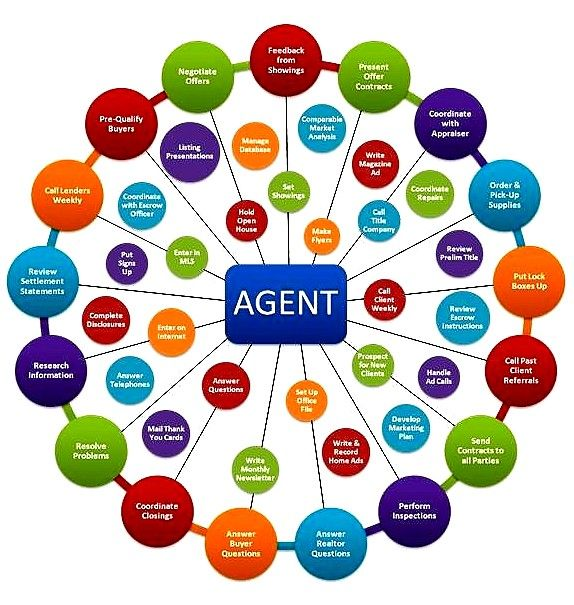Comprehending the Trick Differences In Between a Realtor and Realty Professionals for a Successful Building Purchase
Navigating the complexities of actual estate transactions demands an understanding of the distinctive roles played by Realtors and actual estate representatives. Both are licensed specialists, the subtleties in their credentials and moral commitments can dramatically influence the result of your building dealings. Realtors, bound by the stringent code of ethics of the National Organization of Realtors, assure a degree of honesty that might not be ensured with all property agents. With the potential to influence openness and settlement effectiveness, choosing the appropriate specialist comes to be an essential choice. Yet what various other aspects should be considered for a smooth purchase?
Defining Realtors and Representatives


In the genuine estate industry, identifying in between a Real estate professional and a genuine estate agent is important for recognizing their unique roles and certifications. An actual estate agent is a specialist who has actually obtained a certificate to assist purchasers and vendors in genuine estate purchases.
On the other hand, a Real estate professional is an accredited real estate representative who is likewise a participant of the National Association of Realtors (NAR) This subscription needs adherence to a strict code of principles and expert requirements, which are made to ensure the highest degree of stability and fairness in all transactions. Real estate agents commonly have access to a wide range of sources, consisting of specialized training and professional growth possibilities, which can enhance their ability to offer clients properly. While all Real estate agents are actual estate agents, not all property representatives are Realtors, making this difference important for customers looking for a professional with a dedication to moral techniques.
Licensing and Credentials
Obtaining a property license is the foundational step for people aiming to end up being either a realty representative or a Real estate agent. Elizabeth Leanza Synergy Realty Realtor. This procedure usually involves completing a set number of pre-licensing instructional hours, passing a state-administered exam, and fulfilling any kind of additional state-specific needs. The educational curriculum usually covers vital topics such as genuine estate principles, residential or commercial property laws, contracts, and money, furnishing candidates with comprehensive industry understanding
While all Real estate professionals are actual estate representatives, not all real estate representatives are Realtors. To come to be a Realtor, a licensed real estate representative have to join the National Organization of Realtors (NAR), which calls for adherence to a rigorous set of requirements and conclusion of more education and learning.
Ethical Requirements and Codes
Supporting ethical standards is a cornerstone of professional technique in the actual estate sector. These requirements separate a Real estate professional from a basic actual estate representative, influencing just how they conduct organization.
In comparison, property representatives should follow state licensing laws, which provide a baseline of honest habits yet may not be as extensive or rigorous as the NAR's Code of Ethics. While representatives are obliged to operate lawfully and fairly, the lack of a globally used ethicality can bring about variability in practice standards.
For customers, recognizing these distinctions is vital - Elizabeth Leanza Synergy Realty Realtor. A Real estate professional's dedication to a higher honest standard can give added guarantee of expertise and accountability. When choosing between a Realtor and a genuine estate representative, recognizing the relevance of ethicalities can direct customers towards a professional that aligns with their expectations for moral conduct in property deals

Impact on Purchases
Recognizing the honest standards that Realtors stick to offers a foundation for analyzing their influence on actual estate deals. Realtors, as members of the National Association of Realtors (NAR), are bound by a stringent Code of Ethics, how much are real estate agents which significantly affects their communications and settlements in residential property deals. This adherence to ethical practices makes sure openness and stability, promoting count on in between all celebrations included. Such trust fund is vital for a successful purchase, as it important link can boost communication and promote smoother arrangements.
The Realtor's dedication to moral requirements translates into a much more specialist and reliable service, typically causing quicker and much more efficient deals. Their commitment to act in the best passions of their clients can bring about far better end results, such as safeguarding positive terms or determining potential problems early while doing so. Realtors are equipped with detailed market knowledge and resources, enhancing their ability to navigate complicated transactions expertly.
On the other hand, property agents that are not Realtors might not be bound by the exact same rigid moral standards. This difference can influence the purchase process, possibly presenting irregularity in solution high quality and customer satisfaction degrees. Elizabeth Leanza Synergy Realty Realtor. Ultimately, the impact of a Realtor's moral commitment can be substantial, promoting positive experiences and effective residential property transactions
Choosing the Right Expert
Picking the ideal property professional is an essential action in making sure an effective property deal. The option in between a Real estate agent and a realty representative depends upon numerous elements, consisting of the particular needs of the transaction and the degree of expertise needed. Real estate agents are members of the National Association of Realtors (NAR) and follow a stringent code of principles, which may be useful for clients looking for an expert bound by increased ethical standards. This association can give an additional layer of depend on and guarantee in the handling of intricate deals.
On the other hand, actual estate agents that are not Realtors can still use high levels of service and experience. Their abilities and experience must be examined based upon their record, local market expertise, and client testimonials. When picking between these experts, consider their experience with the sort of home entailed and their negotiation abilities, which are essential for attaining beneficial terms.
Ultimately, the decision ought to be informed by complete study and personal interviews to assess compatibility and interaction style. This makes certain that the chosen expert aligns with the client's goals and assumptions, leading the method for a seamless building purchase.

Conclusion
In summary, differentiating between Realtors and actual estate agents is vital for navigating building transactions effectively. Picking a Realtor can dramatically improve the general experience and confidence in the purchasing or marketing procedure, inevitably adding to useful content even more effective building dealings.